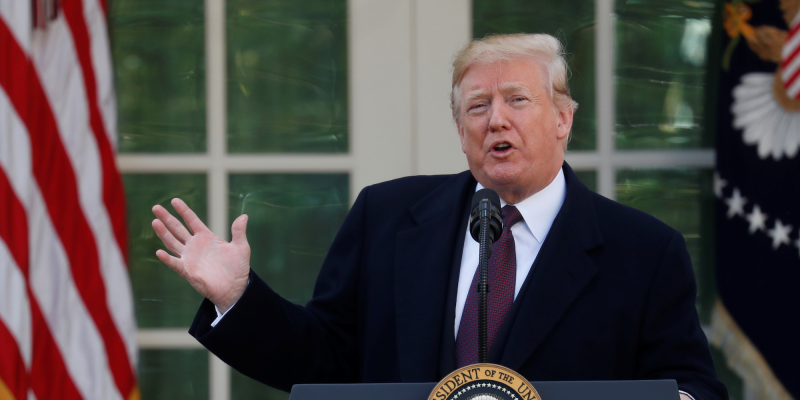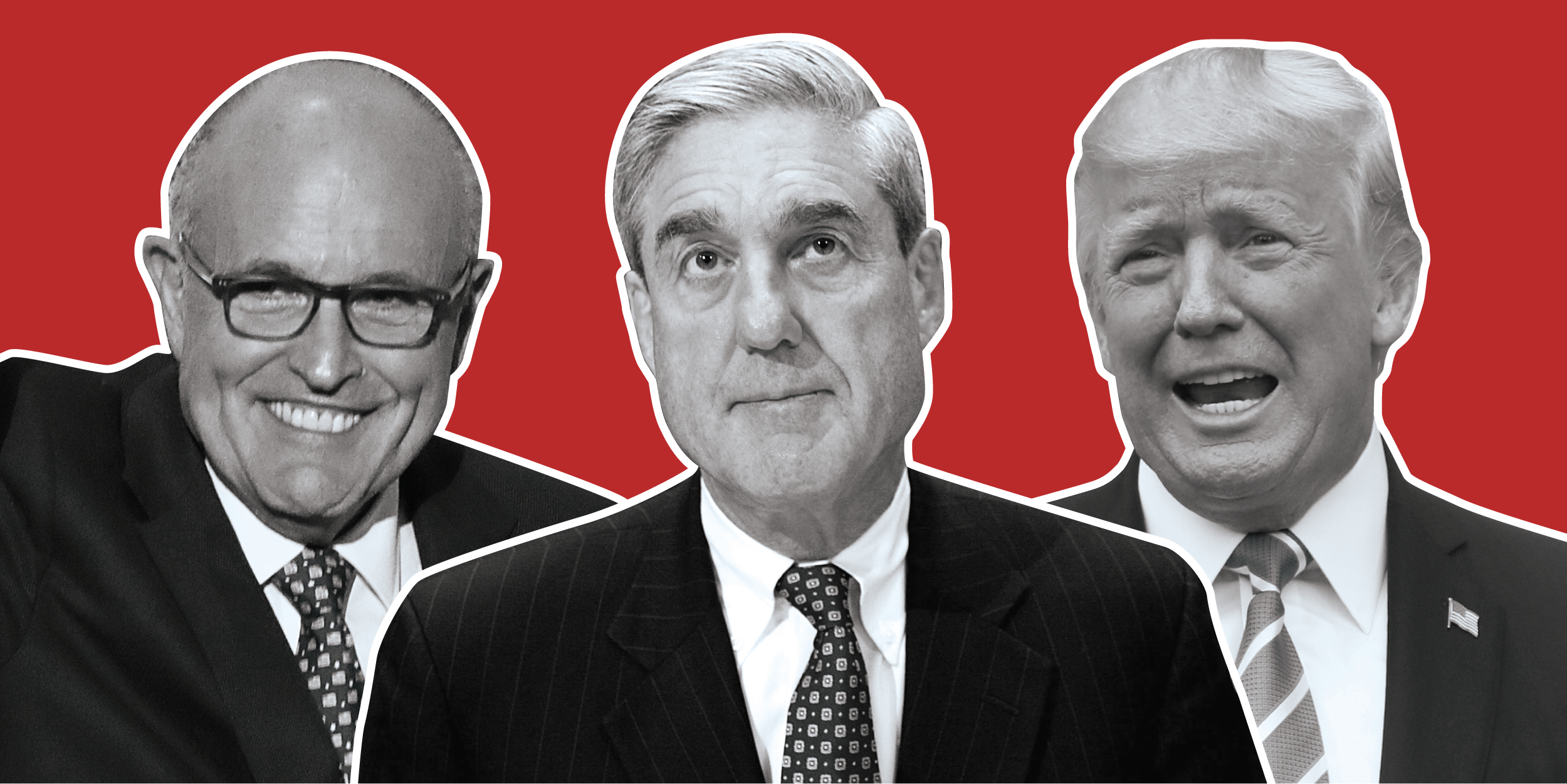- President Donald Trump has submitted written answers to the special counsel Robert Mueller in the Russia investigation.
- This round of questions didn’t cover obstruction of justice, but Trump’s lawyer Rudy Giuliani reportedly said Trump would not answer any such questions in the future either.
- Giuliani argued that executive privilege would shield Trump from answering some of Mueller’s more damning questions.
President Donald Trump won’t answer any questions from the special counsel Robert Mueller having to do with obstruction of justice, Trump’s lawyer Rudy Giuliani told the news website Axios in an article published Wednesday.
Trump submitted written answers for Mueller’s Russia investigation on Tuesday but ruled out answering any future questions about his behavior as president, Axios reported.
The site said that Mueller did not ask specifically about obstruction of justice in this round of questioning but that Trump and his team had decided to stonewall further questions should they arrive.
The answers Trump did provide mark an important milestone in the investigation into the Trump campaign’s ties with Russia, as it is the first time the president described to investigators his knowledge of key moments of the campaign.
While Mueller could subpoena Trump on his activities as president, Giuliani said Trump would refuse to cooperate.
"I don't think he has any way to compel testimony on obstruction because the argument of executive privilege would be very, very strong," Giuliani told Axios. "It all relates to a period of time after he was president."

Mueller previously seemed to acknowledge that the issue of executive privilege could complicate matters in the investigation, particularly as it relates to a presidential interview.
Executive privilege gives the president and the executive branch the power to resist subpoenas from Congress and the judicial branch.
Trump's allies have often framed Mueller's questions to Trump as a "perjury trap" designed to catch Trump contradicting himself under oath, but Giuliani seemed to think they had a way around that.
"The law definitely requires that if you're going to subpoena a president, you have to show that you can't get the information any place else," Giuliani said, suggesting Mueller may have to go on public records and comments.
Giuliani also delved into details about the nature of the questions, saying they pertained mostly to Trump's knowledge of his campaign's interactions with Russia in 2016.
